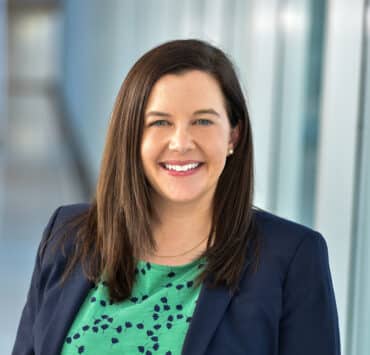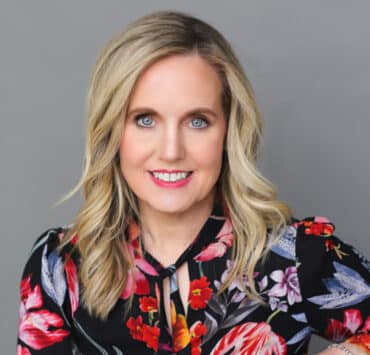|
Getting your Trinity Audio player ready...
|
Mick Dragash’s unconventional professional career path includes a later-than-typical shift to law with considerable personal sacrifices, including sizable student loans, multiple cross-country moves, and postponing a family. Still, if he could go back in time, he wouldn’t change a thing.
Prior to earning his JD, the executive vice president, general counsel, corporate secretary, and chief compliance officer at Cavco Industries Inc., worked as a manager on the shipping docks for two national trucking companies. For part of his seven-year tenure, he also studied law at Ohio Northern University. Managing unionized dock workers and other support personnel gave him insight into how legal matters impacted the company at the ground level. This led to a passion for the transportation and logistics industries.
After graduating from law school, Dragash enrolled in a master’s program for intermodal transportation systems and logistics management at the University of Denver. The curriculum provided a combination of legal and business principles that still benefit him today in a different industry.
Working on the front lines gave Dragash perspective on how corporate policies and personnel matters, such as hiring, disciplining, discharging and laying off or recalling employees, affected individuals and teams. Most importantly, Dragash learned how to manage conflicts and different employee personality types. This type of work experience is invaluable for any corporate lawyer, he says.
That insight became clear during his first year at law school. As a twenty-six-year-old, Dragash wondered why his younger cohorts asked questions that anyone who had experience in the business world would not need to ask. The knowledge gap in some basic business concepts shows in the early years of a legal career for many. The common path for newly minted lawyers is to join a law firm, which means they enter a professional setting equipped with knowledge of legal theory, but little to no real-world business experience.
“Many times, experienced paralegals know more than associates do, not only from a legal perspective, but also from a business standpoint,” Dragash says. He adds young lawyers often need a couple of years to acquire the basic knowledge to which they would have been exposed if they had boots-on-the-ground business experience prior to law school.
“I don’t think they would want to work for the Mick of twenty years ago. I wasn’t very lenient back then, but my perspective now has certainly changed.”
Mick Dragash
Additionally, Dragash’s background playing college football contributed to the foundation for his leadership style when he was an operations supervisor, and ultimately as a lawyer. “It set my mentality and drive,” he reflects. “It develops teamwork—something you need to be successful in business.”
While his prelaw business experience has been invaluable and highly informative to his career as a lawyer, a six-year stint as assistant general counsel at Walmart Inc.’s corporate headquarters also proves critical to his continued success. “From business, operational, and legal perspectives, I learned a ton—more than you can ever learn at a law firm or smaller business,” Dragash states. “I would not be in this position if not for Walmart, including my direct leadership with that organization.”
Working for the Fortune 500 retail giant exposed the lawyer to how a mature public company approaches and manages a legal department and regulatory compliance. This grounding in the intricacies of corporate law well prepared him for the challenges at his current employer Cavco, a publicly traded producer of modular and manufactured homes. When Dragash joined the company in 2019, it was embroiled in an insider trading scandal that was being prosecuted by the US Securities and Exchange Commission (SEC). After almost four years of investigation and litigation, the matter was recently resolved.
“Mick was extraordinary in helping the company face and resolve that crisis, and he’s as fierce a guardian as I’ve ever seen serve as general counsel of a public company,” reflects Philip S. Khinda, partner at Cadwalader, Wickersham & Taft LLP. Khinda served as outside counsel to Cavco during the SEC case.
Fortified with the Walmart experience and a couple of previous general counsel stints at major transportation companies, Dragash navigated a complex web of legal entanglements at Cavco. “The company had grown fast with multiple acquisitions, and it had growing pains,” he reflects. “You find this happens a lot with publicly traded companies. Many times, they retain a small company culture that includes one person at the top controlling everything. That’s not the case with a mature public company that possesses the requisite corporate compliance and governance policies and procedures.”
“If I could change law school, I would set it up like a top-tier MBA program. You would have to have a minimum of two years of work experience prior to application and acceptance.”
Mick Dragash
The attorney was tasked with moving Cavco to a mature organization that functions within the typical boundaries of a publicly traded company. Dragash and his team installed governance improvements, such as a new code of conduct and a formal preclearance process for equity trading.
The corporate maturation was a testament to not only Dragash and his team, but also to Cavco’s President and Chief Executive Officer William C. Boor. In addition to the corporate governance initiatives, Boor supported Dragash as he developed the organization’s legal and compliance functions. For example, prior to his tenure, the legal department had no e-billing, matter management, document management, or litigation hold systems. This was a glaring deficiency and made boosting the legal and compliance department’s IT capabilities a high priority. After implementation of these vital systems, Cavco’s legal and compliance teams now easily can track the progression of matters and run analytics to determine the financial impact on the business.
Dragash’s attitude toward leadership and work-life balance also has changed in recent years. In the past, he would be highly resistant to something as simple as a staffer requesting to work at home for an afternoon. The passage of time, recent pandemic, and especially the birth of his first child a few years ago have tempered his views.
“Having a child changes your viewpoint,” he says. “This has definitely impacted my leadership style.” Becoming a parent later in life has led to a deeper appreciation for precious family time. As a result, Dragash readily approves requests for team members taking time off for things like attending a child’s high school softball game.
“I say ‘sure,’ as long as you can get your work done,” he explains. He believes his staff has certainly benefitted from the drastic change in management style. “I don’t think they would want to work for the Mick of twenty years ago. I wasn’t very lenient back then, but my perspective now has certainly changed.”
While his approach to managing people has evolved, Dragash’s belief that real-world business experience is vital for young lawyers hasn’t wavered. “If I could change law school, I would set it up like a top-tier MBA program,” he says. “You would have to have a minimum of two years of work experience prior to application and acceptance. That way, you bring practical experience to the classroom.”
Although the law community may be resistant to change, Dragash’s career trajectory and success certainly makes a good case for it.
Cadwalader, Wickersham & Taft LLP:
“Mick is a natural as a GC, has been extraordinarily steady in the face of a corporate crisis that has been managed beautifully, and is as committed a protector of the institution as any general counsel I know.”
—Philip S. Khinda, Partner


